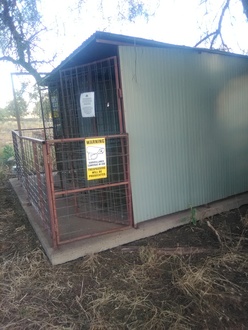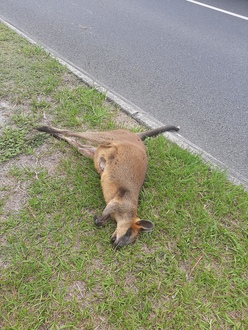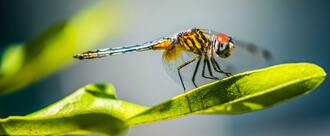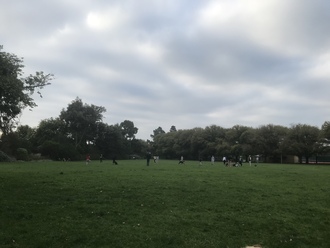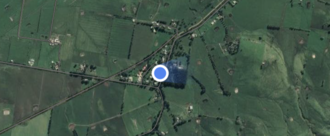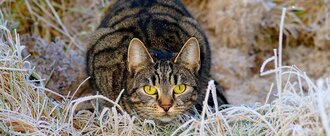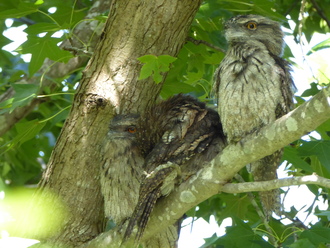-
Canowindra PoundOur town desperately needs a safe secure modern pound facility, our town is growing, so naturally more pets will be part of the community. Currently the outdated facility we use is not safe, as cats escape in to the bush- and dogs can be stolen from there.106 of 200 SignaturesCreated by Chere Michael
-
Keep NW Tasmania Fish Farm FreeIf fish farms are established in NW Tasmania's pristine waters then there will be a massive negative impact on our environment, economy and society. Wynyard, Burnie, Sisters Beach, Table Cape to Stanley's economies are based on a clean, green and unspoiled image. If the NW Brand is tainted by its association with industrial fish farming, and the rapidly accelerating negative press and opposition it is generating, then our economy will be severely impacted. The very reasons that attract visitors and residents to NW Tasmania are diametrically opposed to the industrialisation of our pristine marine environment. Our way of life and quality of life are under threat just so companies and shareholders can make even more money. We reject private corporations & the government making profits off the backs of pristine waters & residents1,463 of 2,000 SignaturesCreated by Kate Day
-
Kangaroo Road Kills on Bribie IslandBribie Island is a flora and fauna sanctuary. Over one third of the island is National Park. Development has accelerated with little planning to cater for this unique Island and its natural flora and fauna. The local Council, Moreton Bay Regional Council does not have a plan specifically for the management of this unique and beautiful, but fragile Island. Kangaroos, Wallabies, snakes, birds and lizards are killed on the roads almost daily. The emus are now extinct on the island as a result of human impact. People move to Bribie Island for its "Liveability" The flora and fauna are part of that. People don't want to see dead kangaroos on the footpath outside the school or the Police euthanasing (shooting) a badly injured kangaroo in their front yard. This already happens too often. Development of the island must proceed with the fragile nature of the flora and fauna in mind: not at its expense. It will only get worse if nothing is done.669 of 800 SignaturesCreated by Ken Salisbury
-
Are you fogging kidding me? Let’s create a cleaner, chemically free Exmouth together.There are a number of reasons why we should ban fogging in Exmouth, Western Australia: 1. Fogging is ineffective - Fogging is only moderately effective in the control of the mosquito population. For each adult mosquito killed, many more larvae in the water remain unaffected. Fogging kills the adults and that gives temporary relief for the day. But the breeding source nearby is not affected, and the next day there will be more adults that can continue to breed and infect us. Reducing the number of larvae is a more effective measure, which means that oiling achieves better results than fogging. 0.1% of sprayed pesticides actually hit the target pest - 99.9 % go off into the environment (Pimentel, D. PhD., BioScience) The pesticides are actually negatively affecting our bird, bee (including native bee), and dragonfly population more than the mosquito population. The risks on our oceanic ecosystem and marine life is also largely unknown. 2. Fogging is toxic to our health - the pesticides used in vector control are neurotoxins and have been linked to adverse effects in humans. Ingredients used in mosquito fogging - malathion mixed with diesel - are powerful neurotoxins, carcinogenic and endocrine disruptors. Exposure to neurotoxins, even in low quantities, is also associated with numbness of the lips and tongue, nausea, headaches and respiratory problems. For these reasons, many countries have banned open-air fogging completely. Pregnant women, fetuses, infants, and children have a greater risk of getting sick from pesticides. Our children and grandchildren are exposed to these pesticides just by playing on our lawns once the fogging is complete. Airborne pesticides are particularly harmful as they may be easily ingested by humans and wildlife. Pesticide residue can also be left behind on items kept outdoors, such as children’s toys and outdoor furniture, or tracked inside on shoes. Children, the elderly, and the chronically ill are at greatest risk from chemically induced immune suppression. (World Resources Institute) Children have a greater risk of developing asthma by age five after pesticide exposure within the first year of life. 3. Fogging is also toxic to other insects and animals, such as butterflies, dragonflies and bees - these beautiful insects are particularly sensitive to pesticides. Malathion is highly toxic to bees and other beneficial insects, some fish, and other aquatic life. When bee populations are greatly affected by pesticides, food production in the area could be affected because of the lack of pollination. Pesticides are also harmful to many other animals, including those that are natural predators of mosquitoes. Most pesticides used in fogging are toxic to fish, which are very important for the eradication of mosquito larvae. Frogs, geckos and birds, which also eat mosquitoes, could also be affected by pesticides. We would like to suggest the following alternatives to fogging: 1. Responsible housekeeping and maintenance -Remove all sources of stagnant or standing water if possible. The eradication of breeding grounds in personal and commercial spaces are much more effective tools in the fight against Ross River virus and Barman Forest virus than widespread fogging is. 2. Relocating the budget to spending the money to destroy and control breeding zones, rather than on fogging. Safe alternatives exist such as garlic and cedar sprays which can last for a month. This should also decrease the current expense that the Health Department currently accrue. 3. Replacing pesticides with natural mosquito repellents such as garlic, peppermint or lemon oils or citrus-based sprays. Turpentine and eucalyptus oils, garlic extracts, surface oils, extracts of orange and lemon peel will all control mosquito larvae. Cinnamon Oil is better for repelling mosquitoes than what is being used. 4. Increasing community effort - The responsibility for eliminating breeding grounds in one’s own home and garden, while reporting possible breeding sites in public spaces to the relevant authorities, lies with everybody. We all need to play our part to keep the mosquito breeding grounds at bay. 5. Increasing and protecting the number of mosquito predators, such as dragonflies and bats, which are both highly effective ways of controlling mosquitoes naturally. The spraying of pesticides kills those natural predators as well as mosquitoes, and because mosquitoes have a shorter reproductive cycle than their predators, following every spraying there are more mosquitoes than there were before, as a number of studies have shown. If you need to control mosquitoes, do not spray; instead, remove standing water (in which mosquitoes breed) and consider introducing dragonflies to the area. Did you know: o A single bat can eat between 6000 to 8000 insects each night. o A single frog can eat over 100 insects in one night. o Dragonflies can eat 30 to 100s mosquitoes per day. The Exmouth Community are strongly advocating for the use of an effective and non-toxic method for reducing the risk of mosquito borne illnesses in Exmouth. Until a safer solution is researched and implemented, we are requesting that further fogging be put on hold.36 of 100 SignaturesCreated by Madeleine Doherty
-
Safety for children and dogs in Ardrie ParkChildren and fur babies safety is extremely important. Excited children and puppies frequently dash towards the rear exit of Ardrie Park. Some run onto the road before parents can catch up.6 of 100 SignaturesCreated by Wendy Kurka
-
Safety for children and dogs in Ardrie ParkChildren and fur babies safety is extremely important. Excited children and puppies frequently dash towards the rear exit of Ardrie Park. Some run onto the road before parents can catch up. Cars often travel at speed along this road. Neighbours have witnessed scary near misses. A safety barrier and gate to prevent a likely traumatic accident is important.18 of 100 SignaturesCreated by Wendy Kurka
-
Save Cyril Jackson OvalCyril Jackson Oval is important to many locals for dog walking, picnics and playing away from the high-use soccer fields on Ashfield Reserve. It provides habitat for numerous birds, including at-risk species like white-tailed and red-tailed black cockatoos. Unless we act before next summer, the grass will die, and the trees and local birdlife will suffer.3 of 100 SignaturesCreated by Emma Saurus
-
Save Woolamai School PlantationThis small pocket of bush rings every morning with a dense chorus of birds taking refuge in our open farming landscape. This 2ha wild place is a left over remnant from the early 20th century practice of school children having 'bush classrooms', planting and growing timber plantations. School plantations had the dual purpose of connecting children to nature and creating trees for sale to State Forestry as an additional, locally controlled income for schools. Left unattended after the school closed, it is now essential habitat. Please take it off the sales list and allow it to remain a rare place that gives priority to wildlife. It is vital to the local and travelling birds, reptiles, mammals and insects of the region. Keeping it is a small gesture with a large impact for a long time. And continues to secure the investment of the children who planted and nurtured this place.61 of 100 SignaturesCreated by Andrea Rieniets
-
Stop the Blue Mountains Luxury Resort/Crocodile Park/ZooApart from the environmental impact of extra tourist traffic in precious bushland, the introduction of yet another tourist hotel/resort, as well as an artificial crocodile park and zoo, are the last things The Blue Mountains National Park needs. Zoos are mainly entertainment for humans, at the expense of animals’ peace and freedom. Being viewed by noisy human crowds imposes stress onto animals with no choice of escape. The Blue Mountains are rich with native fauna, despite numbers hit by 2020’s cataclysmic bushfires. We do not need to cage free animals for our selfish viewing pleasure! And another luxury resort for the rich? Please! 🙄 We need to stop this NOW!1,509 of 2,000 SignaturesCreated by Azura Justice
-
Cat curfews and containment policyAccording to the ANU, feral and roaming domestic cats kill 1.5 billion native animals every year in this country. We cannot begin to reduce this number without the introduction of practical support in the form of cat containment policy.125 of 200 SignaturesCreated by Indra Dhanusha
-
Wildlife bridgesWildlife is always on the move for food, breeding and nesting sites. Since last years bushfires there is major movement of wildlife back into the huge areas that were burnt and are now regrowing. The bridges will get them safely across small local roads as well as major highways.15 of 100 SignaturesCreated by Terry Hile
-
Clean up our River systemFor 25 years now I have tried to get councils to clean up our biggest asset the Georges River. Each flood erodes more of the sandy banks due to urban spread & its diversion of run off water to the creek system that feeds the river. Trees that have been long standing face the risk of falling into the river on the next major flood & noxious weeds supplies a home for ever growing mosquito population.9 of 100 SignaturesCreated by Alan Riley

